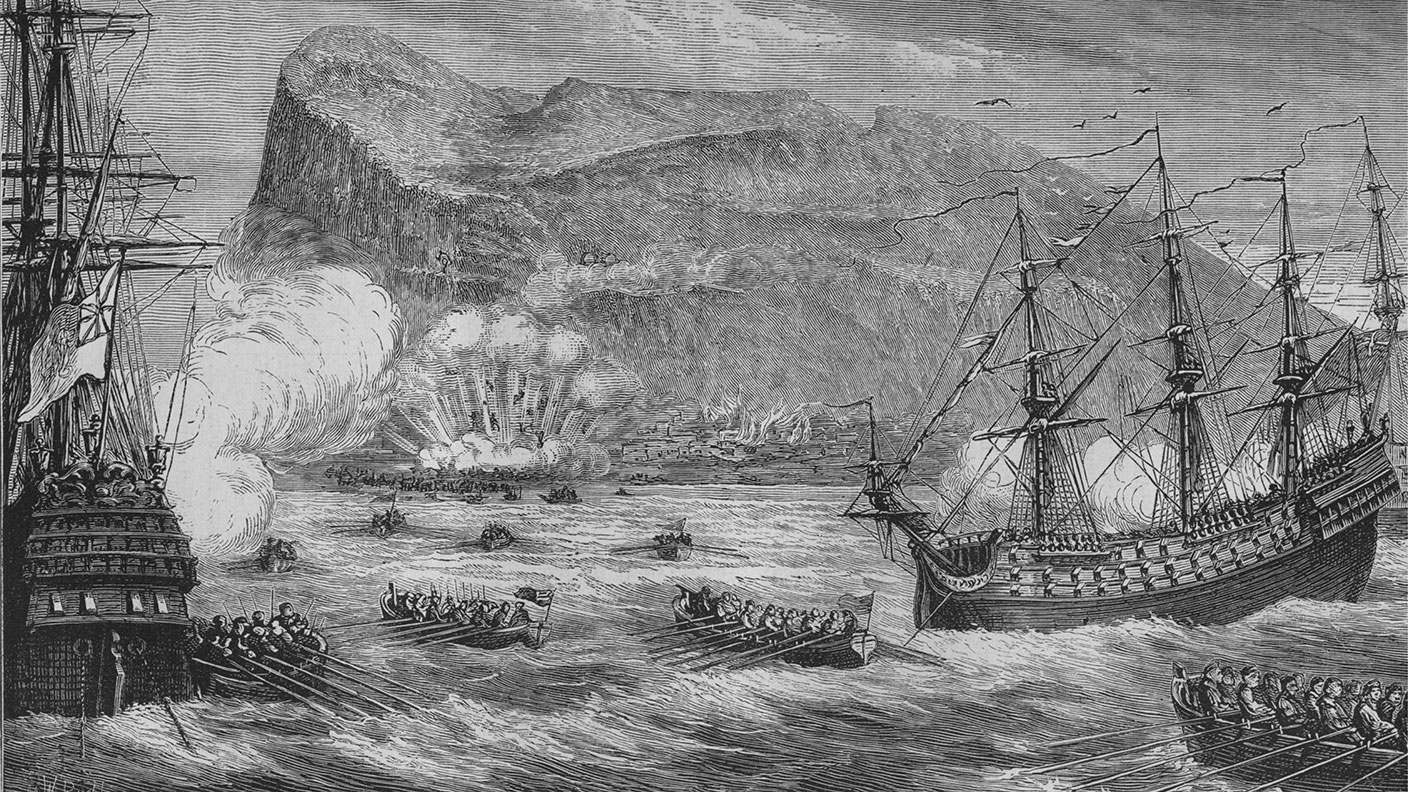
Get the latest financial news, insights and expert analysis from our award-winning MoneyWeek team, to help you understand what really matters when it comes to your finances.
You are now subscribed
Your newsletter sign-up was successful
Want to add more newsletters?

Twice daily
MoneyWeek
Get the latest financial news, insights and expert analysis from our award-winning MoneyWeek team, to help you understand what really matters when it comes to your finances.

Four times a week
Look After My Bills
Sign up to our free money-saving newsletter, filled with the latest news and expert advice to help you find the best tips and deals for managing your bills. Start saving today!
When Spain's King Charles II died in 1700, there was a big pan-European spat over who would succeed him. Charles had nominated Philip of Anjou, grandson of French king Louis XIV. But that would unite France, the continent's dominant military power, with Spain, owner of the world's largest empire.
The maritime powers, England and Holland, weren't having that. So they proposed Archduke Charles, son of Leopold 1 of Austria, and took up arms under the banner of the Grand Alliance to enforce their claim. So began the War of the Spanish Succession, which would be waged for 13 years.
After a few battles in and around the Low Countries, the war moved south after Portugal was “persuaded” to open its ports to alliance ships, so they could more easily move in to the Mediterranean to take on the French fleet. But a port of refuge nearer the action was required. An attempt to take Cadiz had already failed, and so Gibraltar was proposed.
MoneyWeek
Subscribe to MoneyWeek today and get your first six magazine issues absolutely FREE

Sign up to Money Morning
Don't miss the latest investment and personal finances news, market analysis, plus money-saving tips with our free twice-daily newsletter
Don't miss the latest investment and personal finances news, market analysis, plus money-saving tips with our free twice-daily newsletter
On 4 August, English and Dutch marines landed to the north of the rock while ships' guns pounded it from the sea. After six hours of bombardment, troops landed and took the town.
The inhabitants who refused to pledge allegiance to “Charles III of Spain” were allowed to leave. They moved to the north of the bay, to the town of San Roque, whose motto to this day translates as “The very noble and very loyal city of San Roque, where Gibraltar lives on”.
Gibraltar was ceded to Britain “in perpetuity” in 1713 by the Treaty of Utrecht. However, had the Grand Alliance succeeded in their aim of getting their man on the throne, it would almost certainly remained part of Spain, as it was taken in Charles's name, not Philip's. As it turned out, Philip was recognised as king of Spain, but renounced any claim to the throne of France.
Get the latest financial news, insights and expert analysis from our award-winning MoneyWeek team, to help you understand what really matters when it comes to your finances.

-
 Early signs of the AI apocalypse?
Early signs of the AI apocalypse?Uncertainty is rife as investors question what the impact of AI will be.
-
 Reach for the stars to boost Britain's space industry
Reach for the stars to boost Britain's space industryopinion We can’t afford to neglect Britain's space industry. Unfortunately, the government is taking completely the wrong approach, says Matthew Lynn
-
 31 August 1957: the Federation of Malaya declares independence from the UK
31 August 1957: the Federation of Malaya declares independence from the UKFeatures On this day in 1957, after ten years of preparation, the Federation of Malaya became an independent nation.
-
 13 April 1960: the first satellite navigation system is launched
13 April 1960: the first satellite navigation system is launchedFeatures On this day in 1960, Nasa sent the Transit 1B satellite into orbit to provide positioning for the US Navy’s fleet of Polaris ballistic missile submarines.
-
 9 April 1838: National Gallery opens in Trafalgar Square
9 April 1838: National Gallery opens in Trafalgar SquareFeatures On this day in 1838, William Wilkins’ new National Gallery building in Trafalgar Square opened to the public.
-
3 March 1962: British Antarctic Territory is created
Features On this day in 1962, Britain formed the British Antarctic Territory administered from the Falkland Islands.
-
10 March 2000: the dotcom bubble peaks
Features Tech mania fanned by the dawning of the internet age inflated the dotcom bubble to maximum extent, on this day in 2000.
-
9 March 1776: Adam Smith publishes 'The Wealth of Nations'
Features On this day in 1776, Adam Smith, the “father of modern economics”, published his hugely influential book The Wealth of Nations.
-
 8 March 1817: the New York Stock Exchange is formed
8 March 1817: the New York Stock Exchange is formedFeatures On this day in 1817, a group of brokers moved out of a New York coffee house to form what would become the biggest stock exchange in the world.
-
7 March 1969: Queen Elizabeth II officially opens the Victoria Line
Features On this day in 1969, Queen Elizabeth II took only her second trip on the tube to officially open the underground’s newest line – the Victoria Line.
